Qing Xue
Reconfigurable Codebook-Based Beamforming for RDARS-Aided mmWave MU-MIMO Systems
Apr 02, 2025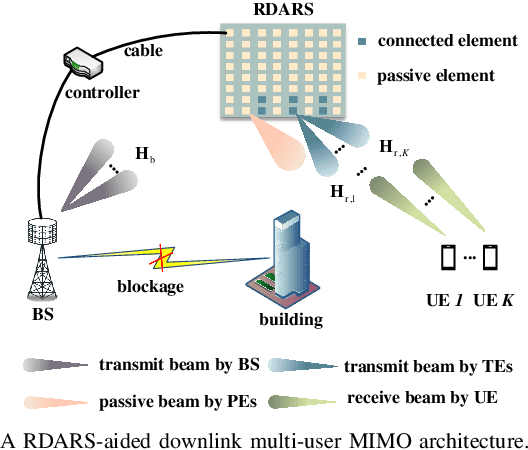
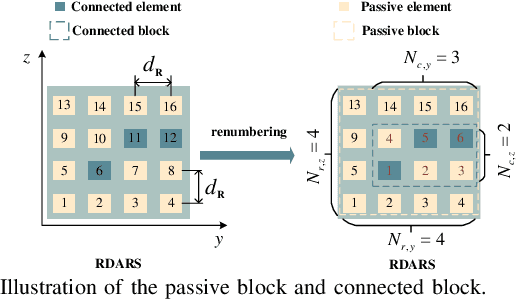
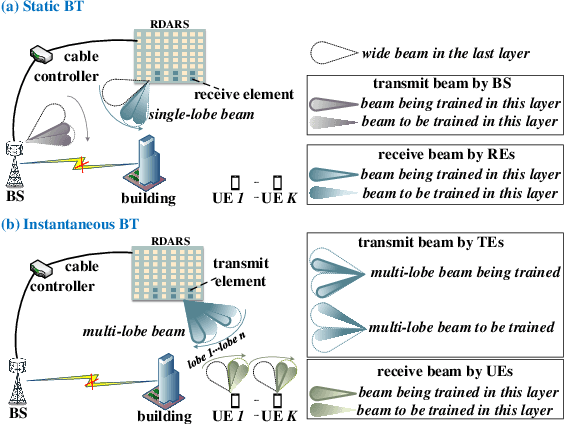
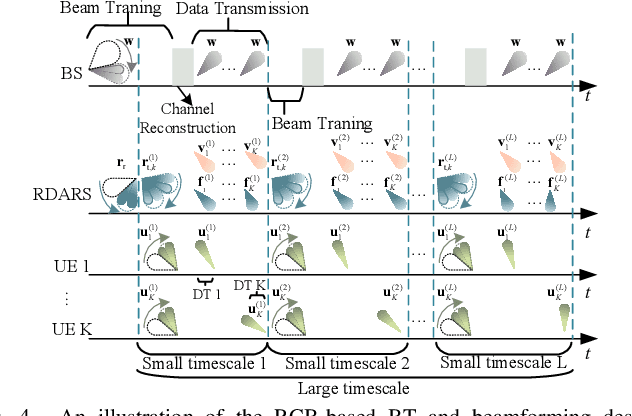
Abstract:Reconfigurable distributed antenna and reflecting surface (RDARS) is a new architecture for the sixth-generation (6G) millimeter wave (mmWave) communications. In RDARS-aided mmWave systems, the active and passive beamforming design and working mode configuration for reconfigurable elements are crucial for system performance. In this paper, we aim to maximize the weighted sum rate (WSR) in the RDARS-aided mmWave system. To take advantage of RDARS, we first design a reconfigurable codebook (RCB) in which the number and dimension of the codeword can be flexibly adjusted. Then, a low overhead beam training scheme based on hierarchical search is proposed. Accordingly, the active and passive beamforming for data transmission is designed to achieve the maximum WSR for both space-division multiple access (SDMA) and time-division multiple access (TDMA) schemes. For the TDMA scheme, the optimal number of RDARS transmit elements and the allocated power budget for WSR maximization are derived in closed form. Besides, the superiority of the RDARS is verified and the conditions under which RDARS outperforms RIS and DAS are given. For the SDMA scheme, we characterize the relationship between the number of RDARS connected elements and the user distribution, followed by the derivation of the optimal placement positions of the RDARS transmit elements. High-quality beamforming design solutions are derived to minimize the inter-user interference (IUI) at the base station and RDARS side respectively, which nearly leads to the maximal WSR. Finally, simulation results confirm our theoretical findings and the superiority of the proposed schemes.
Joint Optimization of Active and Passive Beamforming in Multi-IRS Aided mmWave Communications
Oct 04, 2022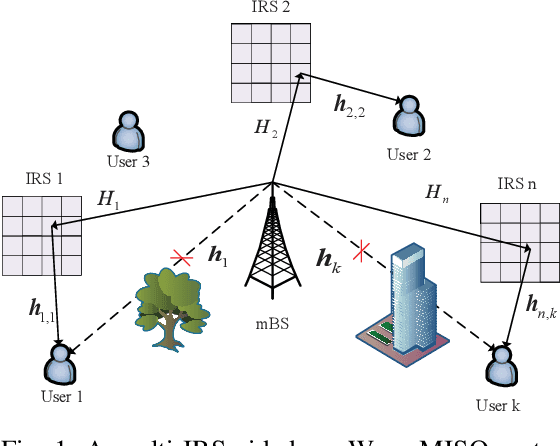
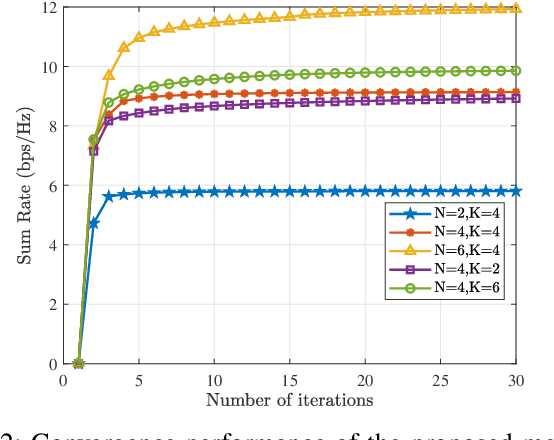
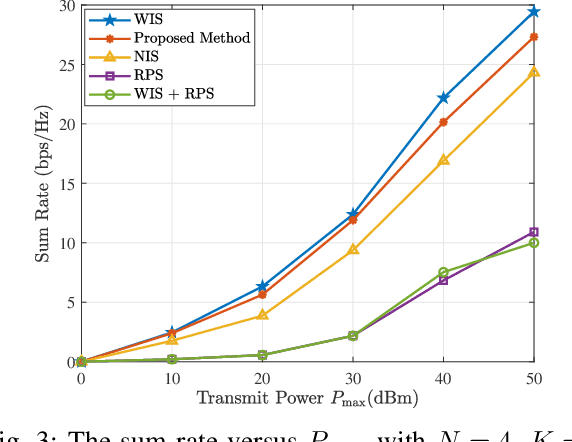
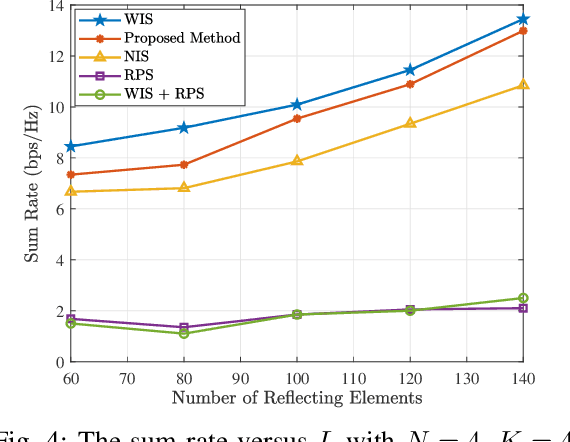
Abstract:Intelligent reflecting surface (IRS) has been considered as a promising technology to alleviate the blockage effect and enhance coverage in millimeter wave (mmWave) communication. To explore the impact of IRS on the performance of mmWave communication, we investigate a multi-IRS assisted mmWave communication network and formulate a sum rate maximization problem by jointly optimizing the active and passive beamforming and the set of IRSs for assistance. The optimization problem is intractable due to the lack of convexity of the objective function and the binary nature of the IRS selection variables. To tackle the complex non-convex problem, an alternating iterative approach is proposed. In particular, utilizing the fractional programming method to optimize the active and passive beamforming and the optimization of IRS selection is solved by enumerating. Simulation results demonstrate the performance gain of our proposed approach.
Beam Management in Ultra-dense mmWave Network via Federated Reinforcement Learning: An Intelligent and Secure Approach
Oct 04, 2022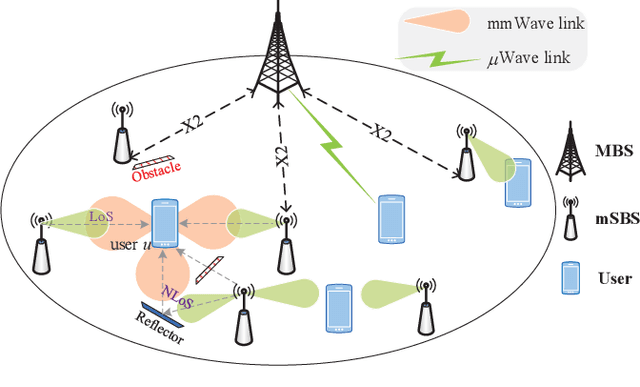
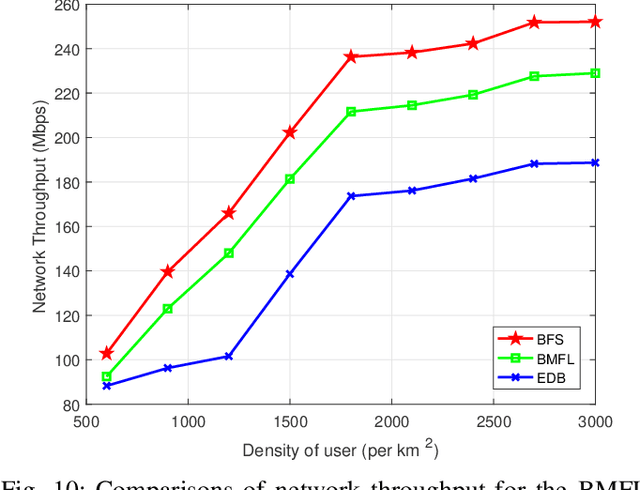
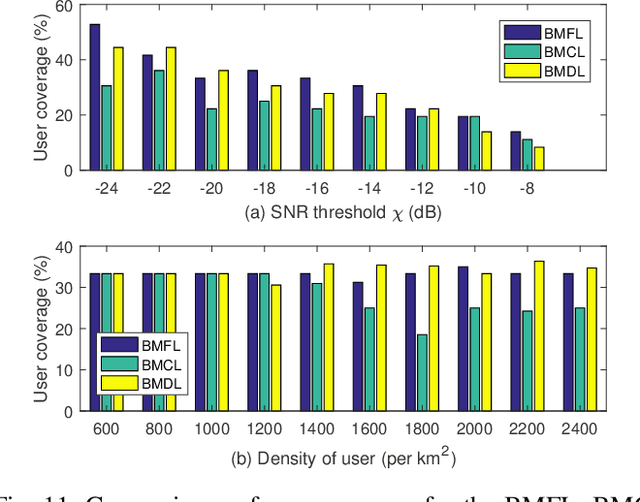
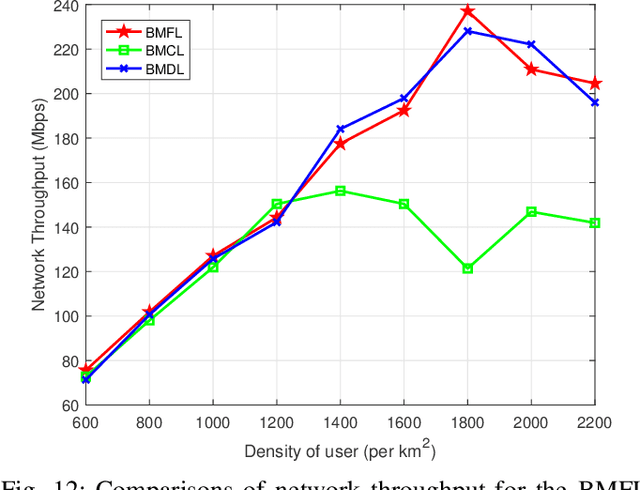
Abstract:Deploying ultra-dense networks that operate on millimeter wave (mmWave) band is a promising way to address the tremendous growth on mobile data traffic. However, one key challenge of ultra-dense mmWave network (UDmmN) is beam management due to the high propagation delay, limited beam coverage as well as numerous beams and users. In this paper, a novel systematic beam control scheme is presented to tackle the beam management problem which is difficult due to the nonconvex objective function. We employ double deep Q-network (DDQN) under a federated learning (FL) framework to address the above optimization problem, and thereby fulfilling adaptive and intelligent beam management in UDmmN. In the proposed beam management scheme based on FL (BMFL), the non-rawdata aggregation can theoretically protect user privacy while reducing handoff cost. Moreover, we propose to adopt a data cleaning technique in the local model training for BMFL, with the aim to further strengthen the privacy protection of users while improving the learning convergence speed. Simulation results demonstrate the performance gain of our proposed scheme.
 Add to Chrome
Add to Chrome Add to Firefox
Add to Firefox Add to Edge
Add to Edge